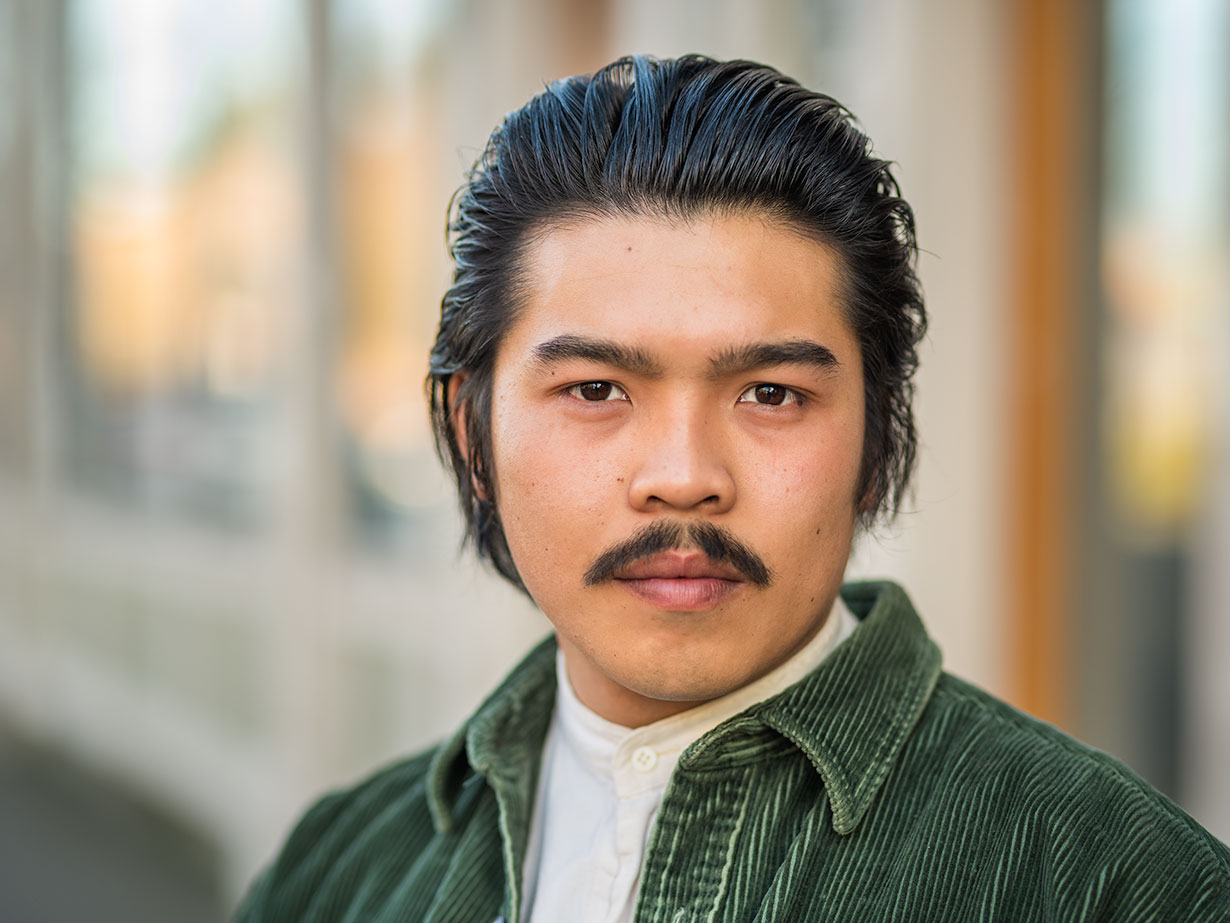For Denzel Mendoza, music has been what ties his life together.
Mendoza was born in Singapore in 1996 and the family moved to the U.S. a few years later for his father’s job. Inspired by his father, a respected architect, Mendoza dreamed of a career in architecture as well.
When Mendoza was about 10 years old, he began to take an interest in music, first playing trumpet and, later, trombone. Around the same time, he was chosen to be one of three students to perform at the Las Vegas Orchestra Festival. Mendoza’s extended family flew out to see him perform. “I had 30 of my family members come and watch me, but there was one empty seat,” explains Mendoza, “and it was my father’s.”
After the festival ended, Mendoza and his mother went back to their apartment to discover all his father’s stuff gone, along with the family’s documents and passports, so that they could not follow him back to Singapore. His father had abandoned them two months before his whole family was to receive permanent residency. Without coverage under a work visa, the family was now undocumented.
“My dreams of becoming an architect went with him when he left,” says Mendoza.
In Mendoza’s sophomore year of high school, his jazz band was invited to perform in New York City. “That trip made me realize this is what I want to do in life, “ he says. “I made it a goal to get to a music school in New York.”
Throughout his high school years, Mendoza says he would often “fake it”, hiding his undocumented status because he didn’t want to feel inferior. “To me, there was no possibility of getting a job or going to college because I was an undocumented immigrant,” he recalls.
Then in 2012, the Deferred Action for Childhood Arrivals program (DACA) made it possible for Mendoza to audition for The New School in New York City and he was accepted with a scholarship.
However, still short on funds, he dropped out after one term and was later kicked out of his apartment. The young musician found himself homeless in Manhattan at 18. “I had my backpack with the clothes I wore for work and my trombone,” says Mendoza. “There were nights where I would just find a park bench and lie down but wouldn’t fall asleep…there were moments where I would hang out at a dinner for hours, drink the same cup of coffee, charge my phone.”
Although he faced depression and homelessness, Mendoza refused to give in. “If I was wasting my mental energy with negative thoughts, I’d be done,” he says. “I thought here I am at my lowest point so there’s only one way to go and that’s up,”
Finally, his mother persuaded him to move back to Las Vegas, where he reconnected with old friends from high school and they began playing music together. In 2016, the friends moved to Portland, Oregon and formed a band called No Ordinary Dropouts,.
Mendoza clearly remembers election day, 2016, when the Trump administration won. That same day, a gig got canceled, and he wondered if it were a sign to give up. At a house party that night, he told the audience he was undocumented. “That was the first time that I opened up to a group of people in public,” he says.’
In 2019, he was invited to participate in American Dreamers: Voices of Hope, Music of Freedom, a recording project where all the musicians were DREAMers. Months later he got a call from one of the producers saying, “You’re going to the Grammys!”
Mendoza remembers sitting in the first row at the Grammys, thrilled to be there. Their album won three awards. “We all stood up from our chairs and clapped and yelled..we were all dreamers.”
Mendoza began to think that anything is possible. “Living a life as an undocumented immigrant, knowing that you’re not able to achieve anything, or be successful, and here we are, eleven undocumented immigrants, winning Grammys,” he says.
Through good times and bad, music has been a constant in Mendoza’s life. “When it comes to my music the voice that’s in my head is coming out through the horn,” he says, “that’s years and years of that conflict of identity coming out…There’s always anger but hope and compassion too.”

